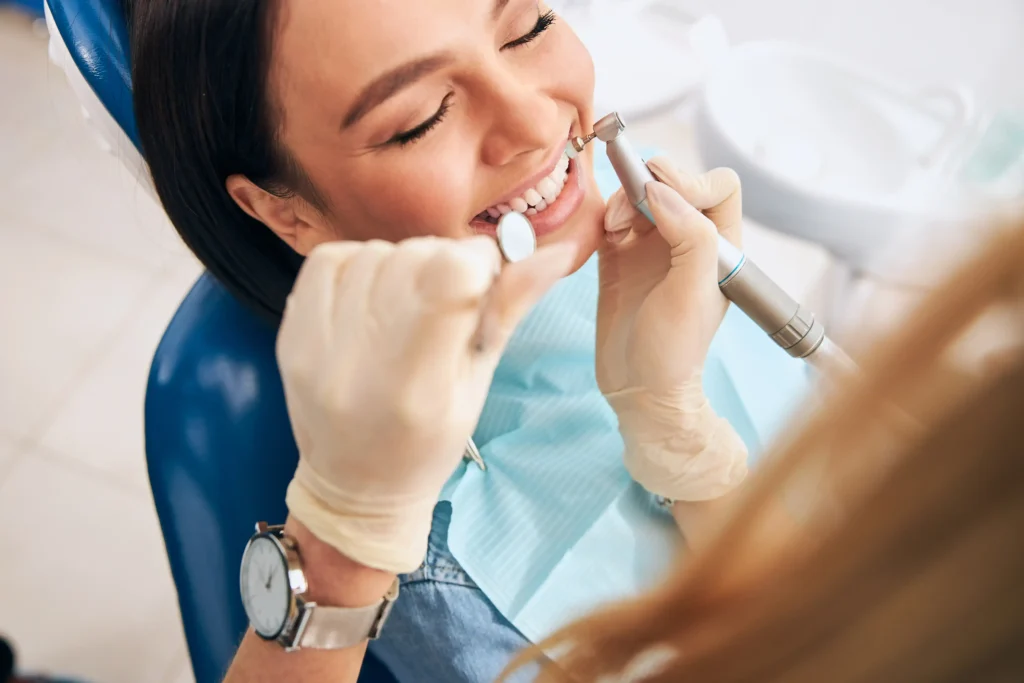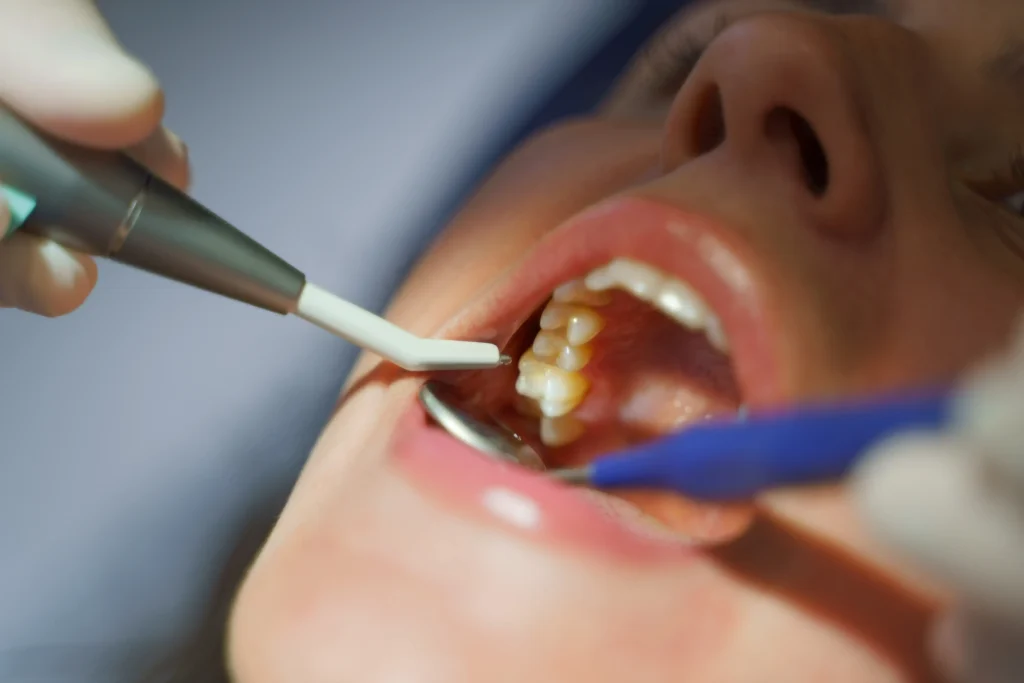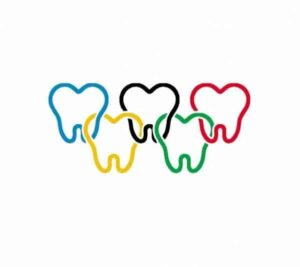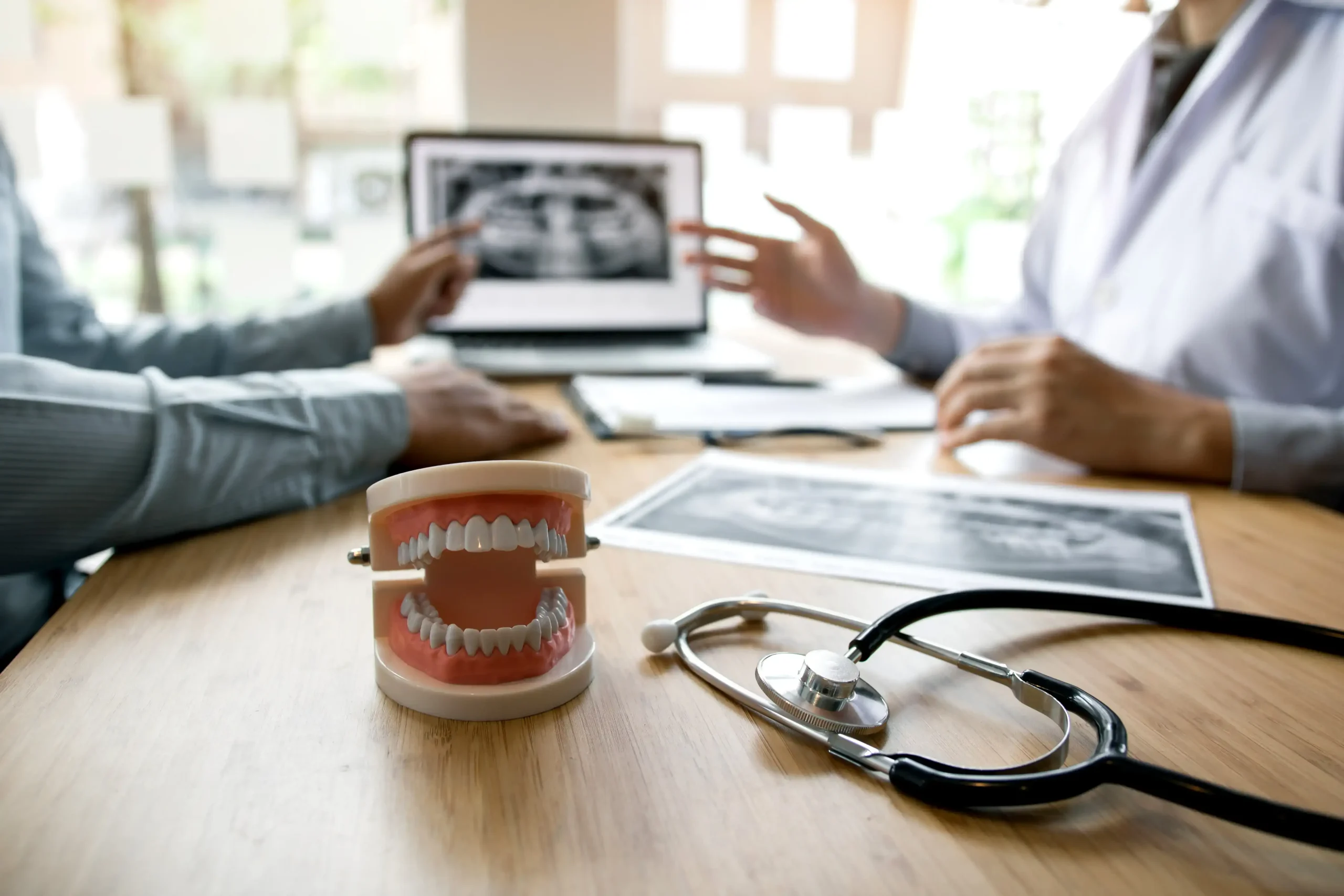Dental cleaning removes plaque and tartar from teeth to prevent cavities and gum disease. It ensures oral health and fresh breath.
Regular dental cleanings are essential for maintaining optimal oral health. They involve professional removal of plaque and tartar that regular brushing can’t eliminate. Cleanings help prevent cavities, gum disease, and other dental issues. Dentists recommend professional cleanings every six months.
This routine care keeps your teeth and gums healthy, reducing the risk of more serious dental problems. Cleanings also contribute to fresher breath and a brighter smile. Investing in regular dental cleanings supports long-term oral health and overall well-being. Make dental cleanings a priority in your oral hygiene routine. Regular visits to your dentist ensure a healthy, confident smile.
The Limits Of At-home Care
At-home dental care has its limitations. Professional cleanings remove plaque and tartar that home routines miss. Regular dentist visits are essential for optimal oral health.
Regular brushing and flossing are essential. Yet, they can’t replace professional dental cleanings. Let’s explore why at-home care has its limits.
Plaque And Tartar Buildup
Even with meticulous brushing, plaque can still accumulate. Here’s why at-home care can’t eliminate it entirely:
- Missed Spots: Hard-to-reach areas, like between teeth, often get overlooked.
- Tartar Formation: Plaque hardens into tartar, which only dental tools can remove.
Deep Cleaning Needs
Surface cleaning is good, but deeper layers need professional attention. This ensures optimal oral health:
- Subgingival Cleaning: Beneath the gumline needs specialized tools.
- Removal of Stubborn Debris: Some particles cling to teeth despite regular brushing.
Identifying Hidden Issues
A dentist can spot problems early. They see what your mirror doesn’t:
- Cavities: Early-stage cavities are often invisible to the untrained eye.
- Gum Disease: Subtle signs of gum disease require a professional diagnosis.
Professional Tools And Techniques
Dentists use advanced tools for thorough cleaning. These tools reach beyond what a toothbrush can:
- Ultrasonic Scalers: Break up plaque and tartar with sound waves.
- Polishing: Removes stains and smooths teeth surfaces.
Personalized Advice
Your dentist offers advice tailored to your needs. This personalized approach helps you maintain better oral health:
- Customized Brushing Techniques: Adjustments based on your dental condition.
- Product Recommendations: Specific toothpaste or mouthwash that suits your needs.
Preventing Major Issues
Regular dental visits prevent bigger problems. Early intervention saves you from extensive treatments:
- Early Detection: Catches issues before they escalate.
- Cost Savings: Prevents expensive procedures down the line.
Fresher Breath
Professional cleanings improve your breath significantly. They remove the bacteria that cause bad breath:
- Plaque Removal: Eliminates odor-causing bacteria.
- Deep Cleaning: Reaches areas that trap odor.
Enhanced Overall Health
Oral health impacts your overall well-being. Regular cleanings contribute to better health:
- Reduces Inflammation: Lessens the risk of systemic diseases.
- Heart Health: Links between oral health and heart disease are well-documented.
Prevent And Eliminate Plaque And Tartar
Regular dental cleaning prevents and eliminates plaque and tartar, ensuring a healthy and bright smile. Professional cleanings reach areas brushing might miss, reducing the risk of cavities and gum disease.
Keeping a bright and healthy smile requires regular dental cleanings. This essential practice helps prevent and eliminate plaque and tartar buildup, ensuring your teeth stay strong and your gums healthy.
What Is Plaque?
Plaque is a sticky film that forms on your teeth. It harbors bacteria that can lead to gum disease and tooth decay.
How Tartar Forms
When plaque isn’t removed, it hardens into tartar. Tartar is tougher to eliminate and can only be removed by a dental professional.
Preventing Plaque Buildup
To maintain oral health, it’s vital to prevent plaque from forming. Here are some effective strategies:
- Brushing twice daily: Removes plaque before it hardens.
- Flossing daily: Cleans between teeth where brushes can’t reach.
- Using mouthwash: Helps kill bacteria and freshens breath.
- Regular dental visits: Professional cleanings and check-ups.
Benefits Of Removing Tartar
Removing tartar offers numerous benefits. Let’s explore a few:
- Prevents cavities: Tartar can erode enamel and cause decay.
- Reduces gum disease risk: Hardened plaque irritates gums, leading to gingivitis.
- Fresher breath: Tartar buildup often results in bad breath.
- Better overall health: Oral health impacts cardiovascular and systemic health.
Professional Dental Cleaning
Professional cleanings are essential for maintaining oral health. Dentists use specialized tools to remove plaque and tartar effectively.
Home Care Tips
Maintaining oral hygiene at home is crucial. Consider these tips to keep your teeth in top shape:
- Use a soft-bristled toothbrush: Gentle on gums but effective on plaque.
- Replace your toothbrush every 3 months: Worn bristles don’t clean well.
- Eat a balanced diet: Nutrients strengthen teeth and gums.
Signs You Need A Cleaning
Knowing when to visit the dentist for a cleaning is important. Watch for these signs:
- Persistent bad breath: Indicates plaque and tartar buildup.
- Gum inflammation: Red, swollen gums need professional care.
- Tooth sensitivity: Plaque and tartar can cause enamel erosion.
Long-term Benefits
Regular dental cleanings offer long-term benefits for your oral health:
- Prolongs tooth life: Prevents decay and gum disease.
- Saves money: Avoids costly dental treatments down the line.
- Boosts confidence: Clean teeth enhance your smile.
Maintaining a consistent dental hygiene routine, combined with professional cleanings, ensures a healthier mouth and a brighter smile.
Prevent Tooth Decay
Regular dental cleaning helps prevent tooth decay by removing plaque and tartar buildup. Professional cleanings ensure healthier gums and stronger teeth.
Maintaining good oral hygiene is crucial for a healthy smile. Regular dental cleanings play a vital role in preventing tooth decay. Let’s explore how professional cleanings help keep your teeth strong and decay-free.
Removal Of Plaque And Tartar
Plaque and tartar buildup can lead to tooth decay. During a dental cleaning, a hygienist removes these harmful substances:
- Plaque removal: Soft, sticky film of bacteria that forms on teeth.
- Tartar removal: Hardened plaque that can only be removed by a dentist.
Strengthening Tooth Enamel
Professional cleanings often include fluoride treatments. These treatments strengthen tooth enamel:
- Fluoride application: A mineral that helps prevent cavities.
- Enamel reinforcement: Makes teeth more resistant to acid attacks.
Identifying Early Signs Of Decay
Regular dental visits allow early detection of potential problems. Hygienists and dentists can spot decay early:
- Early detection: Identifying cavities before they worsen.
- Preventive measures: Recommendations for treatments to stop decay.
Educating On Proper Oral Hygiene
Dental professionals offer valuable advice on maintaining oral health. Their guidance can significantly reduce decay risks:
Regular dental cleanings not only keep your teeth looking great but also protect against decay. Embrace these practices for a healthier smile.
Prevent Gum Disease
Regular dental cleaning prevents gum disease by removing plaque and tartar buildup. Keep your gums healthy with consistent professional cleanings. Maintain optimal oral hygiene and protect your smile.
Maintaining oral hygiene isn’t just about having a bright smile; it’s crucial for preventing serious health issues. Dental cleaning plays a pivotal role in keeping gum disease at bay. Let’s delve into how professional dental cleaning helps in this aspect.
What Is Gum Disease?
Gum disease, or periodontal disease, is an infection of the gums that can progress to affect the bone. Early detection is key.
How Dental Cleaning Prevents Gum Disease
Professional dental cleaning is more than just brushing and flossing at home. It targets areas you might miss.
- Plaque Removal: Plaque is a sticky film of bacteria. Dental cleanings remove it effectively.
- Tartar Elimination: Tartar is hardened plaque. Dentists have special tools to remove it.
- Deep Cleaning: Reaches below the gum line, where regular brushing can’t.
Benefits Of Regular Dental Cleaning
Regular dental visits are essential for maintaining gum health. Let’s explore the benefits:
- Prevention of Cavities: Cleanings remove plaque, reducing the risk of cavities.
- Fresher Breath: Regular cleanings prevent bad breath by removing odor-causing bacteria.
- Early Detection: Dentists can spot signs of gum disease early, preventing serious issues.
Signs You Need A Dental Cleaning
Recognizing the signs can prompt timely dental visits. Here are some indicators:
- Bleeding Gums: Gums that bleed during brushing might indicate gum disease.
- Persistent Bad Breath: Ongoing bad breath could be a sign of plaque buildup.
- Receding Gums: Gums pulling away from teeth is a serious indicator.
The Process Of Dental Cleaning
Understanding the procedure can ease anxiety. Here’s what typically happens during a cleaning:
- Initial Examination: The dentist examines your mouth for signs of gum disease.
- Scaling: Special tools are used to remove plaque and tartar.
- Polishing: Teeth are polished to remove surface stains and smooth the enamel.
How Often Should You Get A Dental Cleaning?
Frequency depends on individual needs. Generally, every six months is recommended, but your dentist might suggest otherwise based on your oral health.
Home Care Tips To Support Dental Cleaning
Home care is crucial in between professional cleanings. Here are some tips:
- Brush Twice Daily: Use fluoride toothpaste for best results.
- Floss Daily: Flossing removes plaque between teeth.
- Use Mouthwash: An antimicrobial mouthwash can reduce bacteria.
Regular dental cleanings are vital in preventing gum disease. By understanding their importance and maintaining good home care practices, you can ensure your gums stay healthy.
Detect Signs Of Other Diseases
Dental cleaning helps detect signs of other diseases, such as oral cancer or diabetes. Regular visits can reveal symptoms early, ensuring timely treatment.
Regular dental cleanings are crucial for maintaining oral health, but did you know they can also reveal signs of other diseases? During a cleaning, a dentist can detect symptoms that might indicate broader health issues. This can lead to early diagnosis and treatment, which is beneficial for overall well-being.
Early Warning Signs Of Diabetes
A dentist might notice symptoms in your mouth that hint at diabetes. These signs can be subtle, but they are significant indicators:
- Dry Mouth: Persistent dryness can suggest high blood sugar levels.
- Gum Disease: Frequent gum infections can signal diabetes.
- Oral Thrush: A yeast infection in the mouth might be a sign of uncontrolled diabetes.
Indicators Of Heart Disease
Your oral health is closely linked to your heart health. Dentists can spot signs that might suggest cardiovascular problems. Here are some key indicators:
- Swollen Gums: Inflammation in the gums can be a red flag for heart issues.
- Loose Teeth: This might indicate a connection between periodontal disease and heart disease.
- Bad Breath: Chronic bad breath can be related to heart conditions.
Symptoms Of Osteoporosis
Osteoporosis affects bones throughout the body, including the jaw. Dentists can observe changes that might indicate this condition:
- Loose Teeth: Jawbone weakening can lead to teeth becoming loose.
- Receding Gums: Gums pulling away from teeth can be a sign of bone loss.
- Changes in Bite: Alterations in how teeth fit together can indicate jawbone density loss.
Signs Of Oral Cancer
Detecting oral cancer early is vital for successful treatment. Regular cleanings help in spotting symptoms early:
- Sores That Don’t Heal: Persistent sores can be a warning sign.
- Lumps or Rough Spots: Unusual growths or textures in the mouth might be cancerous.
- Red or White Patches: Discolored areas can be early indicators of oral cancer.
Indications Of Rheumatoid Arthritis
Rheumatoid arthritis can cause various oral health issues. Dentists can identify signs that might suggest this autoimmune disease:
- Jaw Pain: Chronic discomfort in the jaw can be related to rheumatoid arthritis.
- Gum Inflammation: Persistent gum issues might hint at underlying rheumatoid conditions.
- Difficulty Moving Jaw: Stiffness or pain while moving the jaw can be a symptom.
Signs Of Eating Disorders
Certain oral symptoms can indicate the presence of eating disorders. Dentists are trained to notice these signs during cleanings:
- Erosion of Enamel: Acid from vomiting can erode tooth enamel.
- Swollen Salivary Glands: Repeated vomiting can cause glands to swell.
- Dry Mouth: Reduced saliva production can be a sign of bulimia or anorexia.
Regular dental visits do more than just keep your smile bright. They can provide crucial insights into your overall health. Through careful examination, your dentist can detect signs of serious diseases early, ensuring you get the medical attention you need.
Make Your Smile Look Better
Enhance your smile with professional dental cleaning. Remove plaque, tartar, and stains for a brighter, healthier appearance. Enjoy the confidence of a radiant smile.
A bright, healthy smile can instantly boost your confidence and leave a lasting impression. Regular dental cleaning plays a crucial role in enhancing your smile’s appearance. Here’s how it works.
Removes Stains And Discoloration
Professional cleaning targets surface stains caused by foods and drinks. This process can significantly brighten your teeth.
- Coffee and Tea: Frequent consumption can stain teeth. Cleaning removes these stubborn stains.
- Tobacco: Smoking leaves a yellowish tint. Dental cleaning helps lighten these stains.
- Red Wine: Known for causing discoloration. A thorough cleaning can combat these effects.
Prevents Gum Disease
Healthy gums are essential for a beautiful smile. Dental cleaning helps keep gum disease at bay.
Plaque Removal: Cleaning eliminates plaque, a leading cause of gum disease.
Tartar Buildup: Regular cleanings prevent tartar, which can lead to gum inflammation.
Freshens Breath
Nothing ruins a smile like bad breath. Dental cleaning ensures your breath stays fresh.
- Bacteria Removal: Cleaning removes bacteria that cause bad breath.
- Food Particles: Eliminating trapped food particles helps maintain fresh breath.
Enhances Overall Health
A healthy mouth contributes to your overall well-being. Dental cleaning can positively impact your health.
Prevents Cavities: Cleaning helps prevent cavities, preserving your teeth.
Reduces Risk of Heart Disease: Poor oral health is linked to heart issues. Regular cleaning can reduce this risk.
Boosts Self-esteem
A clean, bright smile can make you feel more confident and self-assured.
- Social Interactions: A great smile enhances social experiences.
- Professional Settings: Confidence in your smile can impact job interviews and presentations.
Regular dental cleanings are essential for a beautiful, healthy smile. They remove stains, prevent gum disease, and keep your breath fresh. Investing in your dental health is a step toward a brighter, more confident you.
Save Money
Save money by scheduling regular dental cleanings. Prevent costly dental issues with routine care and maintain a bright smile. Prioritize oral health to avoid expensive treatments.
Regular dental cleanings can save you a significant amount of money in the long run. By maintaining oral hygiene, you avoid costly dental procedures and treatments. Let’s explore how professional dental cleanings can be a cost-effective investment.
Prevent Costly Treatments
Routine dental cleanings can help you steer clear of expensive treatments. Here’s how:
- Early Detection: Dentists spot problems early, saving on expensive procedures.
- Cavity Prevention: Regular cleanings prevent cavities, avoiding fillings or root canals.
- Gum Disease: Cleanings reduce gum disease risk, preventing costly treatments.
Preserve Your Teeth
Keeping your natural teeth intact is a crucial aspect of dental health. Regular cleanings can help:
Maintaining your natural teeth means avoiding pricey dental work. Cleanings remove plaque, which can lead to decay and tooth loss. Strong, healthy teeth reduce the need for implants or dentures.
Insurance Benefits
Utilizing your dental insurance benefits can further reduce costs. Here’s a quick overview:
- Coverage for Cleanings: Most insurance plans cover cleanings, making them virtually free.
- Preventive Care: Taking advantage of preventive care reduces the need for expensive treatments.
- Yearly Allowance: Using your yearly allowance wisely can save money.
Avoid Painful Emergencies
Emergency dental visits can be both painful and expensive. Here’s why regular cleanings help:
Dental emergencies often result from neglected oral health. Regular check-ups and cleanings prevent these sudden issues. Avoiding emergencies means fewer unexpected bills and less pain.
Long-term Savings
Thinking long-term, dental cleanings are a smart financial decision. Here’s a summary:
Regular cleanings ensure long-term savings on dental care. Preventing issues before they escalate saves money. Investing in cleanings today means fewer costly procedures tomorrow.
Get A Teeth Cleaning From Trained Professionals
Achieve a brighter smile with expert dental cleaning from our trained professionals. Ensure optimal oral health and prevent plaque buildup effectively. Schedule your appointment today and experience top-notch care.
Getting a professional teeth cleaning is crucial for maintaining optimal oral health. Not only does it ensure a radiant smile, but it also prevents various dental issues. Here’s why you should trust trained professionals with your dental cleaning needs.
Expertise And Experience
Trained professionals possess the necessary skills and knowledge to provide comprehensive dental cleanings. Their expertise ensures that every part of your mouth receives the attention it needs. This level of care is something only a trained professional can deliver.
Advanced Tools And Techniques
Professionals use state-of-the-art equipment and advanced techniques. Here are some key benefits:
- Precision tools: Ensure thorough cleaning and plaque removal.
- Latest technology: Provides a more comfortable and effective cleaning experience.
- Specialized training: Professionals are updated on the latest advancements in dental care.
Early Detection Of Issues
Regular cleanings by trained professionals can help identify potential dental problems early. This proactive approach can save you from more serious issues down the line. Early detection is vital for maintaining long-term dental health.
Customized Dental Care
Professional cleanings offer tailored care plans that address individual needs. This personalized approach helps in maintaining optimal oral health.
Safety And Comfort
Visiting a professional ensures a safe and comfortable cleaning experience. Here are some reasons why:
- Sterile environment: Minimizes the risk of infections.
- Expert handling: Reduces discomfort during the procedure.
- Patient comfort: Professionals ensure you are at ease throughout the cleaning.
Comprehensive Oral Health Advice
Professionals provide valuable advice on maintaining oral health between visits. This guidance is essential for keeping your teeth and gums healthy.
Long-term Benefits
Regular professional cleanings contribute to long-term oral health. They help in preventing tooth decay, gum disease, and other dental issues. Investing in professional cleanings is an investment in your overall health.
Frequently Asked Questions
Is Teeth Cleaning Painful?
Teeth cleaning is usually not painful. You might feel minor discomfort or sensitivity. Dentists use gentle techniques to ensure comfort. Regular cleanings help maintain oral health.
Is It Good To Clean Teeth By Dentist?
Yes, professional dental cleaning is beneficial. It removes plaque, prevents cavities, and maintains gum health. Regular cleanings support overall oral hygiene.
Is A Dental Deep Cleaning Ever Really Necessary?
Yes, dental deep cleaning is sometimes necessary. It helps treat gum disease and prevents tooth loss. Regular cleanings can’t remove hardened plaque and tartar.
What Is Dental Cleaning Called?
Dental cleaning is called prophylaxis. It removes plaque, tartar, and stains from teeth. Regular cleanings maintain oral health.
Conclusion
Regular dental cleanings are essential for maintaining good oral health. They prevent cavities, gum disease, and bad breath. Schedule your cleaning today to keep your smile bright and healthy. Remember, a clean mouth contributes to overall well-being. Prioritize your dental hygiene for a lifetime of happy smiles.





